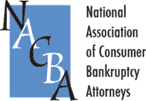
Student loans are crushing our graduates, and putting a strain on our national economy. California graduates are saddled with debt, and one of the biggest questions we are asked is whether student loan debt is dischargeable in bankruptcy.
In general, student loan debt is a non-dischargeable debt. After your Chapter 7 discharge, you will still have to pay those student loans.
Although there is a hardship test (often called a “brunner” test) that can make student loans dischargeable, meeting that test is extraordinarily difficult, and bankruptcy courts nationally don’t seem to be doing much to make it any easier on student loan debtors. And some debtors, unfortunately, don’t seem to understand that test, and bring bad cases to court, seeking to get student loans discharged.
How to Try to Get a Discharge the Wrong Way
A recent case out of the Federal Bankruptcy Court in Iowa again applied a hardship test to see if student loans could be discharged in a bankruptcy.
The case involved a debtor who had incurred 23 different student loans by the time she had filed for bankruptcy. The debtor alleged hardship as a result of medical conditions she, her husband and her child suffered due to mold exposure. She had worked minimally since high school, because she hadn’t yet attained a masters degree, which she believed was needed for gainful employment; she also stated, however, she couldn’t get a job because she was “overqualified.” She hadn’t sought a job in 5 years.
She also testified that she intended to homeschool her children and that she would thus be prevented from working for the next 18 years.
Her husband made $30,000 yearly, but was not seeking higher paying work which the bankruptcy court felt he was qualified to do.
All of the couple’s credit card debts had been discharged in the main bankruptcy proceeding. When extra money had been available in the past, the debtor had paid family members, but not her student loans.
The court felt that the medical issues related to mold did not create any kind of medical undue hardship, based on the medical records provided. The court also noted that low income must be involuntary—that is, someone can’t purposely under-employ themselves, or fail to take reasonable measures to make more money, and still claim undue hardship. Here, the court felt the debtor could make a higher income than she was.
To top it all off, the debtor would have been eligible for a $0 monthly student loan payment under federal income based repayment guidelines. Yet, she had not even applied to any of those programs, which the court felt was a purposeful attempt to try to evade her student loans.
Bad Cases Create Bad Law
Going into a case with the wrong facts and the wrong situation (or, unfortunately, the wrong lawyers), as was the case here, only creates bad precedent for those who legitimately may seek student loan discharge in a Chapter 7 bankruptcy.
Clearly, this was a case in how to apply for a student loan discharge the wrong way. There are certainly legitimate hardships that may qualify for a student loan discharge. But courts look very closely at debtor’s situation, and impose a high standard on them before discharging loans.
If you’re considering bankruptcy, you want lawyers that can analyze your entire financial picture. Let experienced San Diego bankruptcy attorneys evaluate your case and discuss with you the best and safest path to discharging all of your debt. Contact the Bankruptcy Law Center for a free consultation today.









